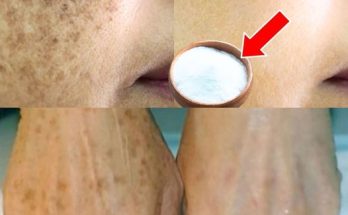Dealing with a snoring partner can feel like a nightly battle for rest. If your husband struggles with snoring but is hesitant to take medications, there are plenty of natural and home-based solutions to explore. Understanding the root cause of his snoring and implementing lifestyle changes can make a world of difference. Let’s dive into practical and effective remedies to ensure peaceful nights for both of you.

Understanding the Causes of Snoring
Snoring happens when airflow through the mouth and nose is partially obstructed during sleep. Common causes include:
- Nasal congestion: Allergies or sinus issues can block the nasal passages.
- Excess weight: Fat deposits around the neck can constrict the airway.
- Alcohol consumption: Relaxation of throat muscles increases snoring risk.
- Sleep position: Lying on the back causes the tongue and soft palate to collapse backward.
- Throat anatomy: Enlarged tonsils or a low, thick soft palate can contribute.
Identifying the main triggers of your husband’s snoring is key to finding the best solution.
The Impact of Snoring on Health and Relationships
Snoring isn’t just an annoyance—it can disrupt sleep quality for both partners. Over time, it may lead to:
- Daytime fatigue: Interrupted sleep causes tiredness and irritability.
- Strained relationships: A partner’s lack of rest can create tension.
- Health concerns: Chronic snoring could signal sleep apnea, a condition linked to heart disease and high blood pressure.
Addressing snoring improves not only health but also the harmony of your household.
Simple Lifestyle Changes to Reduce Snoring
Many snoring solutions start with basic lifestyle tweaks. Encourage your husband to try these:
- Maintain a healthy weight: Losing even a few pounds can reduce pressure on the airway.
- Limit alcohol intake: Especially before bedtime, alcohol relaxes throat muscles, making snoring more likely.
- Stick to a sleep routine: Consistent sleep schedules promote better rest and minimize snoring triggers.
Small changes like these can lead to noticeable improvements.

Dietary Adjustments for Better Sleep
Your husband’s diet may also influence his snoring. Here are some helpful tips:
- Avoid heavy meals: Eating large or fatty meals close to bedtime can worsen snoring.
- Cut back on dairy: Dairy products can increase mucus production, leading to nasal congestion.
- Stay hydrated: Dehydration thickens mucus, making it harder to breathe freely.
- Incorporate sleep-friendly foods: Bananas, almonds, and cherries, rich in melatonin and magnesium, can promote restful sleep.
These dietary tweaks can make a difference in reducing nighttime disruptions.
Sleep Position Matters: Encourage Side Sleeping
One of the simplest ways to combat snoring is by changing sleep position. Sleeping on the back allows gravity to pull the tongue and soft tissues toward the throat, partially blocking the airway. Side sleeping, on the other hand, helps keep the airway open.
Pro Tip: Use a body pillow or a positional device to encourage your husband to stay on his side throughout the night.

Creating a Snore-Free Sleep Environment
Optimizing the bedroom environment can minimize snoring triggers:
- Clean regularly: Dust and allergens can cause nasal congestion.
- Use hypoallergenic bedding: Reduce the risk of allergic reactions.
- Control humidity: A humidifier prevents dry air from irritating nasal passages.
- Invest in white noise machines or earplugs: These can help you sleep better even if the snoring persists.
A well-maintained sleep space benefits both of you.
Breathing Exercises and Techniques
Strengthening the muscles in the throat and improving airflow can reduce snoring. Encourage your husband to try these:
- Nasal breathing exercises: Practice deep, controlled breaths through the nose.
- Singing or playing wind instruments: These activities tone the upper airway muscles.
- Daily throat exercises: Simple exercises like sliding the tongue along the roof of the mouth can strengthen key muscles.
Consistent practice can yield long-term benefits.
Humidifiers and Air Purifiers: Tools for Comfort
Adding a humidifier or air purifier to your bedroom setup can work wonders:
- Humidifiers: Moist air soothes dry throats and reduces irritation.
- Air purifiers: These remove allergens, improving nasal airflow and reducing congestion.
These devices create a healthier environment for restful sleep.

Natural Remedies and Herbal Solutions
For those who prefer natural approaches, consider these remedies:
- Essential oils: Peppermint and eucalyptus oils can open nasal passages. Use them in a diffuser or apply diluted oil to the chest.
- Herbal teas: Ingredients like chamomile or valerian root help relax the body and encourage deep sleep.
While these remedies may not work for everyone, they are worth trying as part of a holistic approach.
When to Seek Professional Help
If snoring persists despite trying these remedies, it may be time to consult a professional. Chronic snoring could indicate obstructive sleep apnea, a serious condition that requires medical intervention. Symptoms like gasping for air during sleep, extreme daytime fatigue, or high blood pressure warrant a visit to a healthcare provider. A sleep study can diagnose the issue and lead to effective treatment options, such as:
- CPAP machines: Provide continuous airflow to prevent airway collapse.
- Oral appliances: Custom devices that adjust the position of the jaw and tongue.
- Surgical interventions: In severe cases, surgery may be recommended to remove obstructions.
Conclusion: Peaceful Nights Are Within Reach
Snoring doesn’t have to keep you both awake. By identifying the causes and implementing these practical home remedies, you can help your husband find relief—and reclaim restful nights for yourself. From lifestyle changes and dietary tweaks to environmental modifications and natural remedies, there’s no shortage of options to explore. If the problem persists, don’t hesitate to seek professional guidance. Rest assured, with persistence and care, a snore-free sleep is possible!



